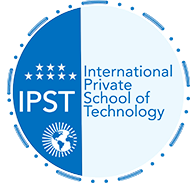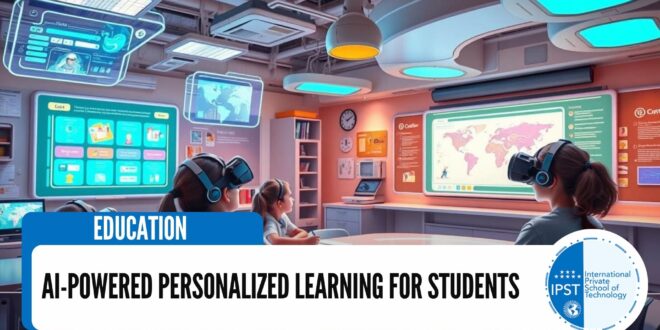With the advancement of artificial intelligence (AI) technology, many sectors have begun to leverage its capabilities to improve performance and offer more personalized experiences. Education is no exception, as AI has become a pivotal tool in the development of personalized learning. In this article, we explore how AI can enhance the student experience in the future through personalized learning and provide advanced educational solutions tailored to individual needs.
1. What is Personalized Learning with Artificial Intelligence?
Personalized learning is the process of adapting education to suit the individual needs and abilities of each student, rather than using a “one-size-fits-all” approach. With AI, personalized learning experiences can be designed based on data and advanced analysis.
AI in education works by analyzing student performance data, such as learning speed, grades, questions they struggle to answer, and preferred learning methods. Based on this data, AI can customize educational content and offer tailored learning experiences for each student.
Source: EdTech Magazine – The Role of AI in Personalized Learning
2. Adapting to Individual Learning Styles
One of the biggest advantages AI offers in personalized education is its ability to adapt to individual learning styles. Some students learn better through reading, while others prefer hands-on experiences or watching videos. AI helps identify these patterns and deliver content that aligns with individual preferences.
For example, AI-powered systems can analyze student performance in real time and direct them to additional resources such as educational videos or interactive activities that match their learning style.
Source: Forbes – How AI is Shaping Personalized Learning in Education
3. Providing Instant and Tailored Feedback
A key benefit of using AI in personalized learning is the ability to provide instant feedback. Instead of waiting for test results or monthly assignments, students can receive immediate feedback on their performance, helping them improve their skills in real time.
AI systems can analyze student responses, identify common errors, and offer personalized feedback that highlights areas needing improvement. This enhances students’ understanding of concepts and helps them learn more effectively.
Source: The Chronicle of Higher Education – AI-Driven Feedback in Education
4. Improving Student-Teacher Interaction
Thanks to AI, students can have more personalized interactions with teachers even in online or remote learning environments. Some AI-powered systems provide students with intelligent assistants that can answer questions, offer additional explanations, and even conduct interactive tests.
In this context, teachers can also use AI to analyze student progress and identify which students need additional support, enabling them to allocate their time and efforts more effectively.
Source: Inside Higher Ed – AI and the Future of Student-Teacher Interaction
5. Challenges in Using AI in Personalized Learning
Despite the immense opportunities AI offers, there are several challenges that may hinder its implementation. Some of these challenges include:
- Privacy and Data Protection: AI systems rely on collecting and analyzing vast amounts of personal data from students, raising concerns about privacy and data security.
- Accessibility: Not all schools or universities may have the infrastructure required to implement AI technologies.
- Human Resistance: Some teachers may hesitate to adopt these technologies out of fear of being replaced by intelligent systems or because of their impact on traditional teaching methods.
Source: Edutopia – The Challenges of AI in Education
6. The Future: How AI Will Make a Bigger Impact?
In the future, AI is expected to become more advanced and capable of offering even more personalized learning experiences. Students can expect to receive an educational experience specifically tailored to their needs at each stage of their learning journey. Additionally, AI could integrate with augmented reality (AR) and virtual reality (VR) to create immersive learning environments that enhance actual learning.
Moreover, AI will provide innovative solutions to address global educational challenges, such as disparities in educational opportunities, helping to provide equal education for all.
Source: The World Economic Forum – AI in Education: Shaping the Future of Learning
Conclusion
Personalized learning using artificial intelligence represents the future of education. With the ability to tailor educational content, provide instant feedback, and enhance student-teacher interaction, AI can radically change the way students learn in the future. Despite the challenges that may arise in implementing these technologies, the possibilities they offer will significantly improve the learning experience and increase its effectiveness.
This article highlights the role of AI in enhancing personalized learning and explores the challenges and opportunities associated with it, supported by reliable sources.
 International Private School of Technology المدرسة الدولية الخاصة للتكنولوجيا Private School مدرسة خاصة للتكوين المهني
International Private School of Technology المدرسة الدولية الخاصة للتكنولوجيا Private School مدرسة خاصة للتكوين المهني


